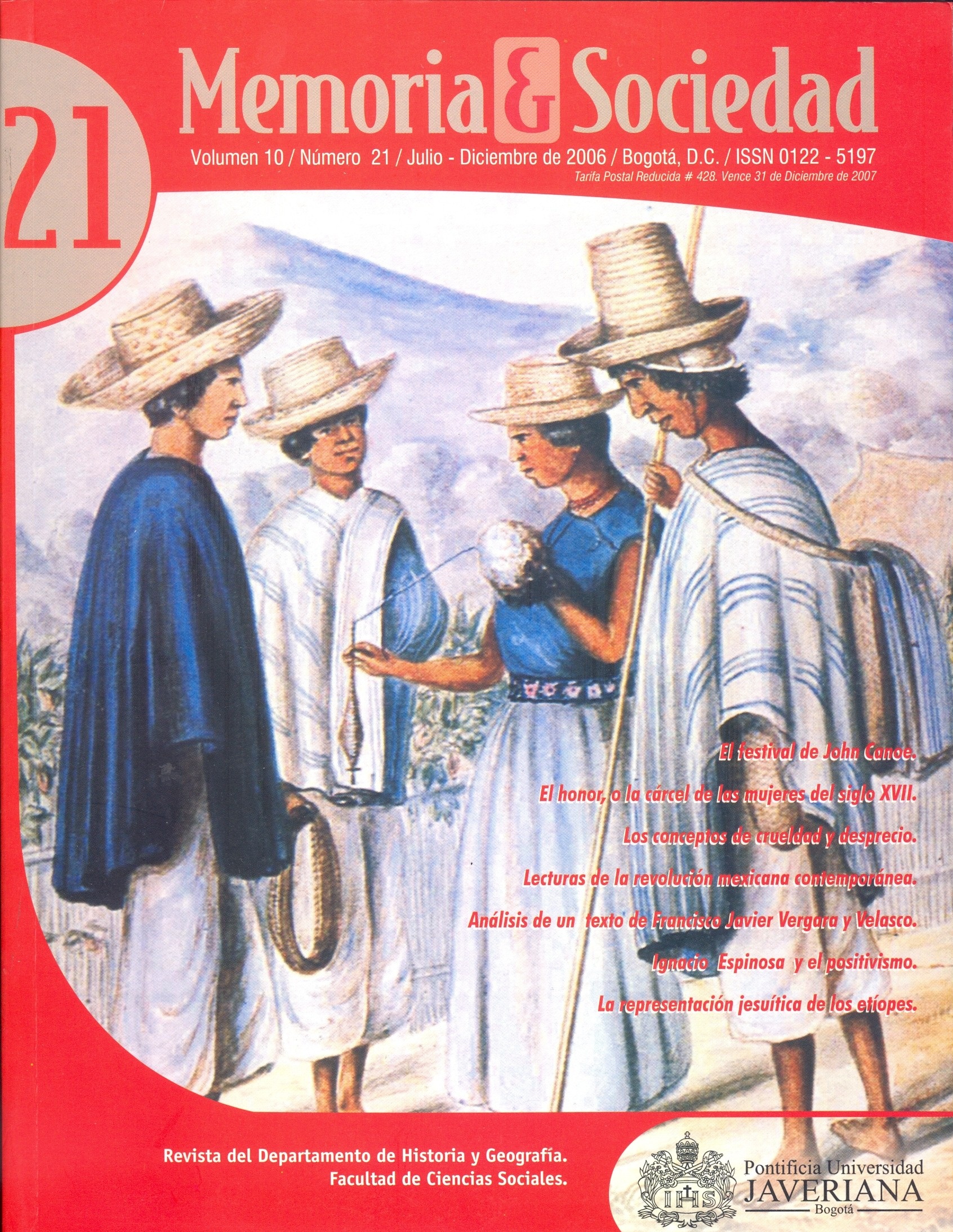Abstract
The purpose of this article is to show the limited scope of the concept of misrecognition used by Axel Honneth. With this concept the author pretends to give account of the moral implications of human vulnerability. In his work Honneth establishes a strong dependency between the concept of misrecognition on a positive moral instance. This dependency has as a consequence the difficulty of understanding the significance of some forms of moral injury that are not reducible to misrecognition. To illustrate this, I intend to describe a painful historical situation characteristic of the encounter between the Spaniards and the Indians in the first period of the conquest of el Nuevo Reino de Granada.The journal Memoria y Sociedad is registered under a Creative Commons Attribution 4.0 International Public License. Thus, this work may be reproduced, distributed, and publicly shared in digital format, as long as the names of the authors and Pontificia Universidad Javeriana are acknowledged. Others are allowed to quote, adapt, transform, auto-archive, republish, and create based on this material, for any purpose (even commercial ones), provided the authorship is duly acknowledged, a link to the original work is provided, and it is specified if changes have been made. Pontificia Universidad Javeriana does not hold the rights of published works and the authors are solely responsible for the contents of their works; they keep the moral, intellectual, privacy, and publicity rights.
Approving the intervention of the work (review, copy-editing, translation, layout) and the following outreach, are granted through an use license and not through an assignment of rights. This means the journal and Pontificia Universidad Javeriana cannot be held responsible for any ethical malpractice by the authors. As a consequence of the protection granted by the use license, the journal is not required to publish recantations or modify information already published, unless the errata stems from the editorial management process. Publishing contents in this journal does not generate royalties for contributors.

